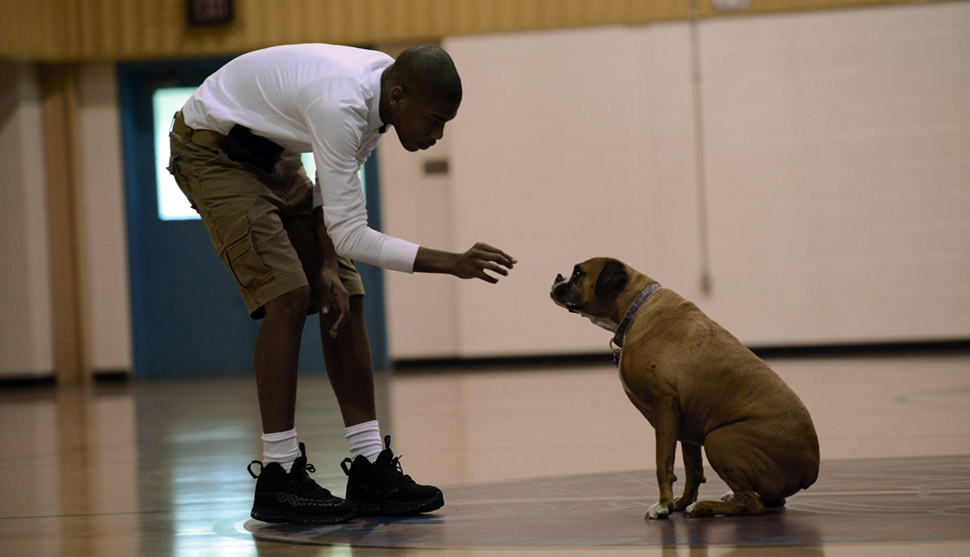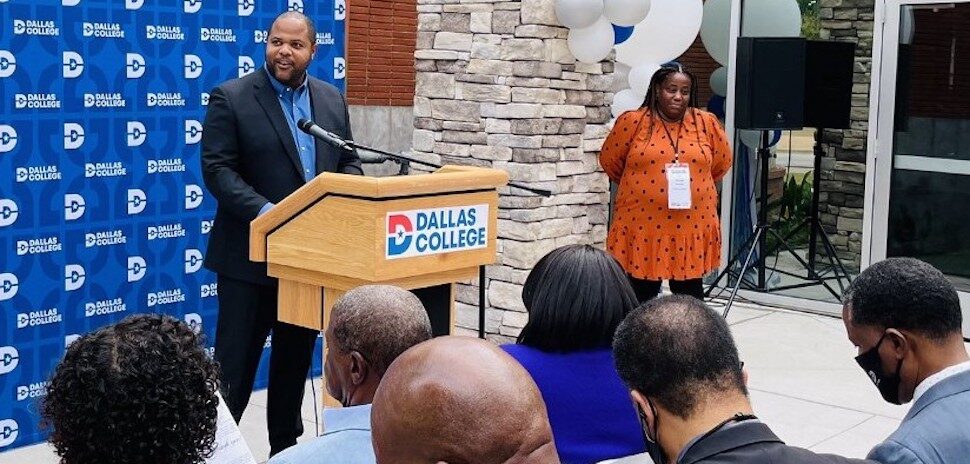The PREP program—which stands for patience, responsibility, empathy, and partnership—teaches incarcerated teens to approach challenges with empathy and compassion by helping them train a furry friend.
The program is part of the efforts by Youth With Faces, a nonprofit focused on breaking the cycle of incarceration. It’s the first program of its kind in the Dallas-Fort Worth area, and its second summer session just started earlier this month.
Pups, praise, and partnership
Training starts after pairs of young men ages 12-17 select a rescue dog from Oak Hill Animal Rescue. Many of the boys and dogs come from violent backgrounds, so the program’s teens are able to relate to their canine companions.
Michelle Jones, Youth With Faces’ community engagement director, thinks that commonality allows the teens to develop a deep bond with the dogs.
“They have a lot of empathy for the dogs, and the dogs connect with them really well,” Jones told Dallas Innovates. “It teaches them how to really care about animals.”
The teens and dogs bond over the four-week course. The students focus on using positive reinforcement techniques taught by their trainer Jane Davidson, who is part of Eureka! Canine Behavior Specialists.
“The whole basis of modern dog training is getting the dog to develop a relationship with you,” Davidson says. “They have to learn to get the dog to like them and enjoy their company. And that honestly teaches them a lot about patience and influencing somebody in a positive way.”
This kind of positive learning environment benefits both the two-legged and the four-legged. Dogs that are trained are said to be adopted quicker, and the teens learn how to collaborate with their partner and be emotionally invested in something meaningful.
“Any kind of prison environment is isolating,” Davidson says. “So, there’s a freedom to really express a loving bond with the dog, and the boys bond with the dogs very quickly.”
READ NEXT Q+A: Skratch CEO Talks About Building Job App for Teens
Dreams after detention
The life skills and strategies the teens learn during PREP go beyond affecting their behavior in the detention center. These kids, along with other Youth With Faces participants, have a return-to-prison rate of just 13 percent. That’s nearly 30 percent lower than the statewide average.
That’s something that Chris Quadri, Youth With Face’s CEO, is proud of. He believes it’s very meaningful to bring resources to kids in this situation, because he was in that situation himself when he was 19.
“I know what our guys have been through, I know they’re in a place of crisis,” Chris says. “All of them have desires, dreams that may be sort of saddled underneath this weight of incarceration … Let’s invest in them in ways that are going to help them get back on track.”
He hopes programs like the PREP program will gain popularity across the state. In large metropolitan areas like Dallas, there are many animals that need to be adopted and many young incarcerated people who need a positive outlet. That’s why he says there is no downside to prioritizing these kinds of rehabilitation programs.
“These are teenagers who have all of the challenges of normal teenagers, and piled on top of that oftentimes are mental health disorders, disrupted family living situations, and poverty,” Chris says. “It’s amazing the grit and determination these kids have, and it’s our job to really harness that. The desire to keep going in life.”
All of the dogs in the Youth With Faces program are available for adoption at Oak Hill Animal Rescue. Click here to learn more.
![]()
Get on the list.
Dallas Innovates, every day.
Sign up to keep your eye on what’s new and next in Dallas-Fort Worth, every day.




























